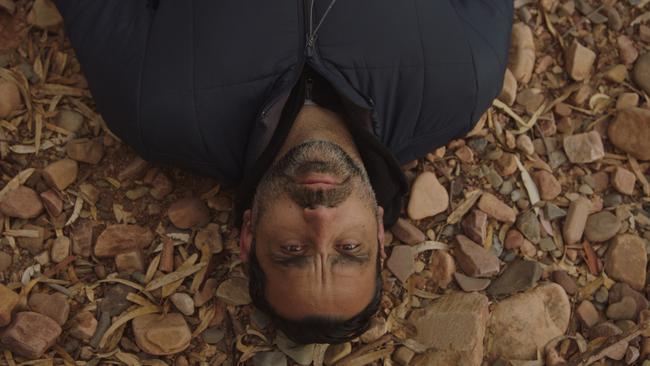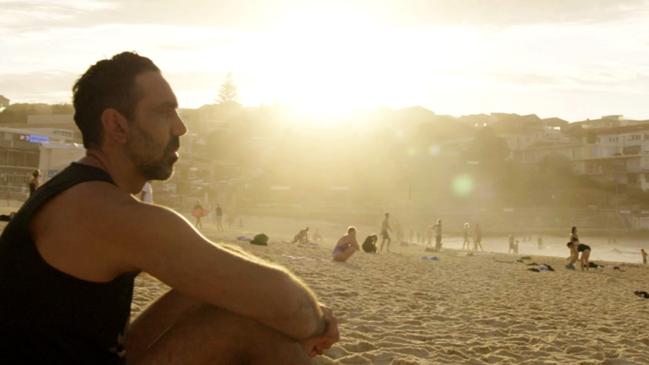Our skin can’t get thicker, Adam Goodes tells his detractors
Adam Goodes speaks about racism and the events that led to him leaving the game in a doco that opens Melbourne film festival.

For Adam Goodes, the football ground was a place of acceptance and safety when he was a boy growing up. But by the end of his illustrious sporting career, that same area became a place that he hated to go to.
In the new documentary, The Australian Dream, written by Stan Grant and directed by Daniel Gordon, Goodes talks about living with relatives then moving again because his mother wanted to keep them away from “toxic” environments of alcohol and violence. “One thing that helped us assimilate was our love for sports,” he says.
This led to the AFL and the Sydney Swans where Goodes won two Brownlow Medals and two premierships.
“Football for me was a place where I got accepted for just being good at football,” Goodes says. “Didn’t matter the colour of my skin, didn’t matter where I came from.”
The second documentary released this year about the former Sydney Swans star features interviews with Goodes speaking about his early years and also examines the controversial events that led to him leaving the game.
“This safe place that helped me break down barriers actually became the place that I hated to walk out on to,” he says in the film.

In the film, which opens the Melbourne International Film Festival tonight, former indigenous St Kilda player Gilbert McAdam criticises commentators who talked down the targeted booing at matches.
“What would they bloody know what it’s like to be a blackfella?” McAdam says. “From the day you’re born, from the day you go to school, from the day you go to work, we’re dealing with it every day.”
Nicky Winmar, who famously raised his jumper while playing for St Kilda in a game against Collingwood in 1993 and pointed to his skin, tells the documentary crew he left football because he was tired of the fighting. “I did go through a lot and I just didn’t want to play the game any more,” he says.
“I was tired of being angry towards other players on the field and fighting, all that stuff, because it wasn’t part of footy.”
Collingwood president Eddie McGuire’s on-air radio suggestion that Goodes could play King Kong also makes the film, with McGuire saying it was a “mistake” and a “misspoken moment”. In response Goodes said McGuire forgot where he was and said it was an “off-the-cuff thing that he would say at a barbecue, at a bar”.
“It just highlighted my point, that casual racism is there.”
McGuire told The Australian yesterday that the documentary was “fantastic” and encouraged people to see it. “(Stan Grant) in particular takes the narrative to the next point in time that we should all be working towards a resolution instead of just looking backwards at a situation,” McGuire said.
Grant said the most important aspect of the film was that the story was told by Aboriginal people from their perspective. “We hear Aboriginal voices speaking the truth as it is to them and I think it’s a really powerful and really important thing,” he said. “I think it’s a very confronting part of the film.”
Grant said the thrust of Goodes’s message was that reconciliation would be achieved only when people see and hear Aboriginal people “in a way we haven’t in the past”.
In the film Goodes talks about future change: “You want us to grow thicker skin? Our skin doesn’t get any thicker than what it is. You want us to harden up? Well, how about you come on a journey with us and help us? We don’t want any handouts any more. We want a hand up. Let’s give each other a hand up.”



To join the conversation, please log in. Don't have an account? Register
Join the conversation, you are commenting as Logout